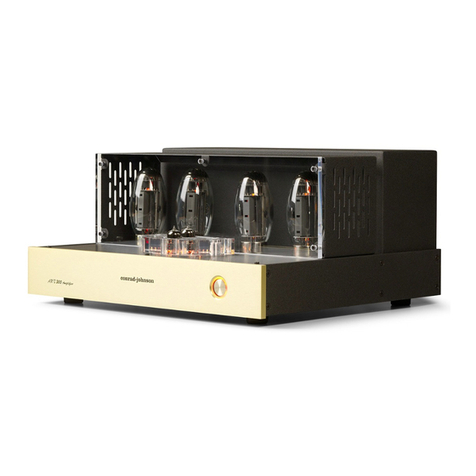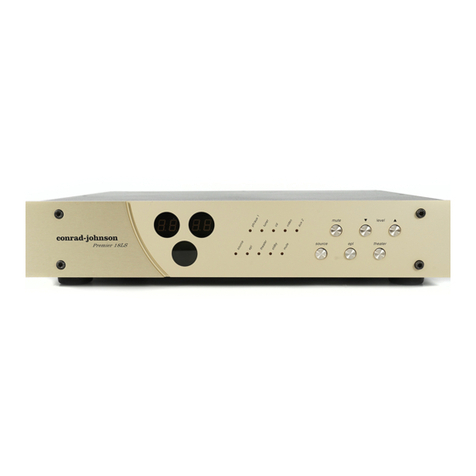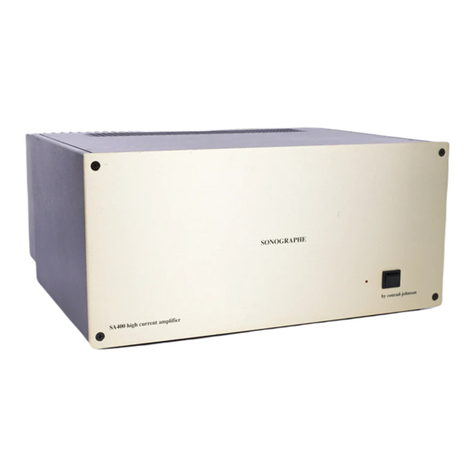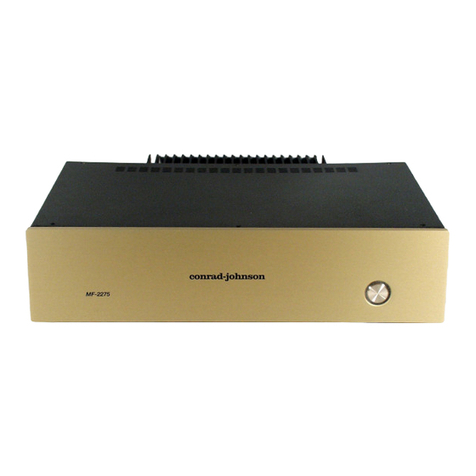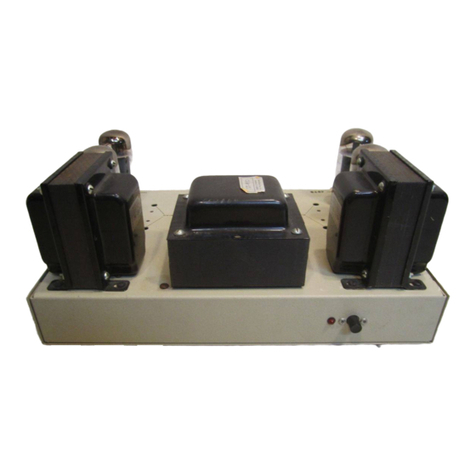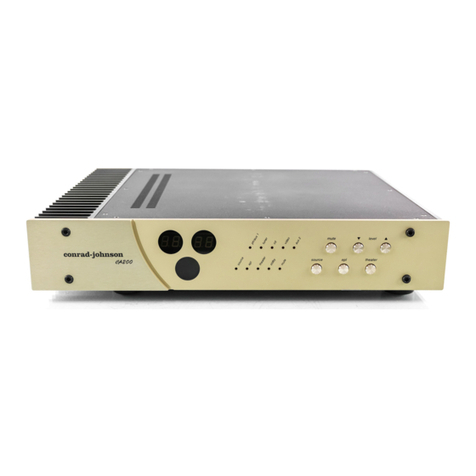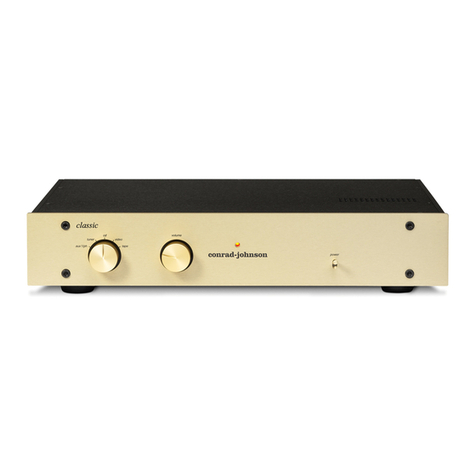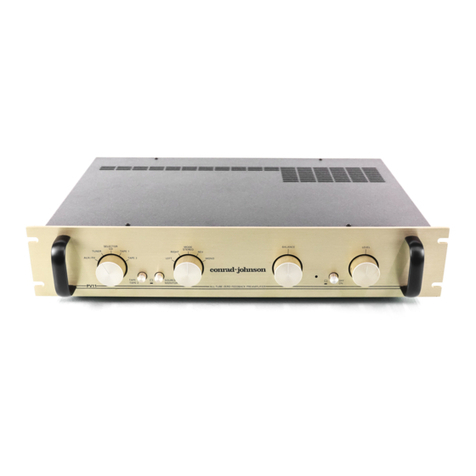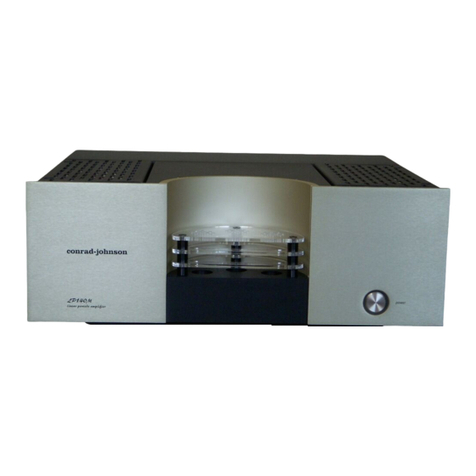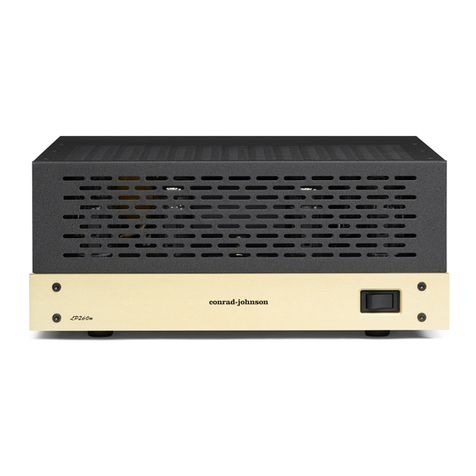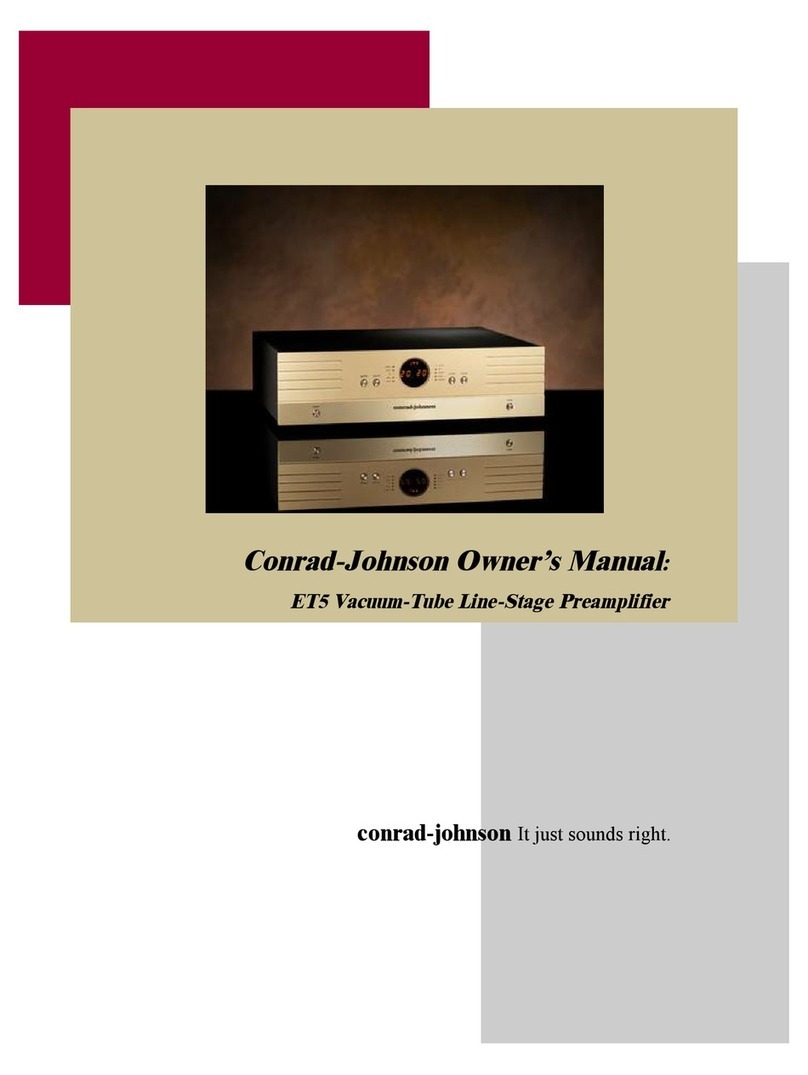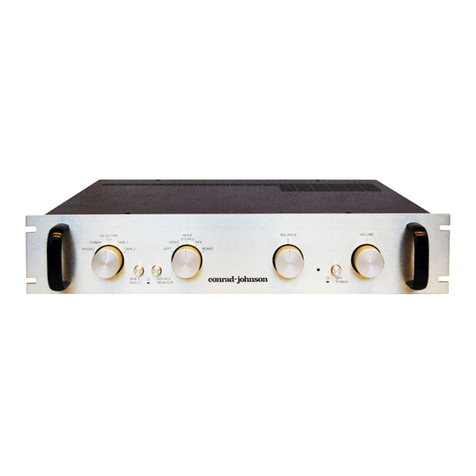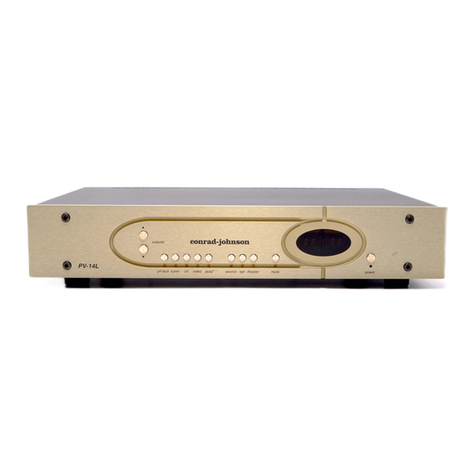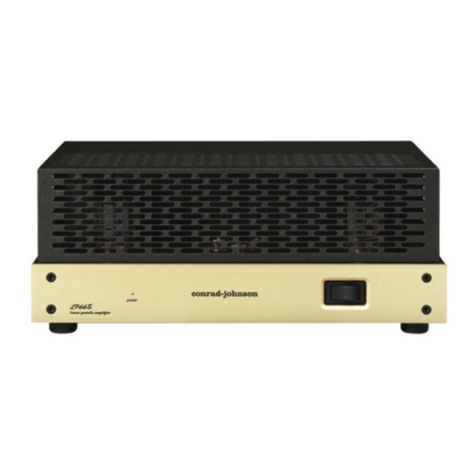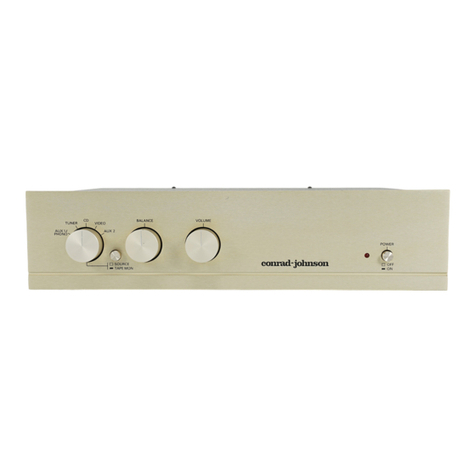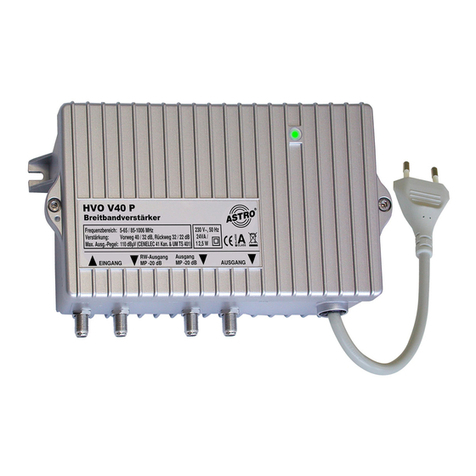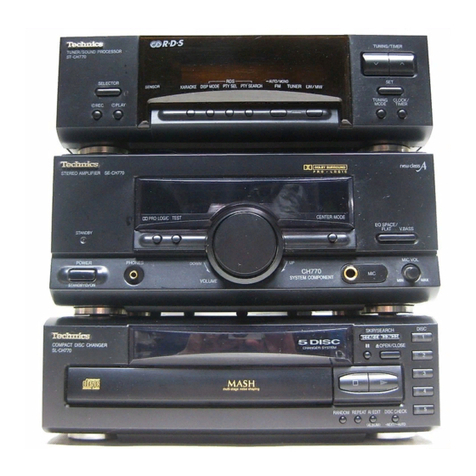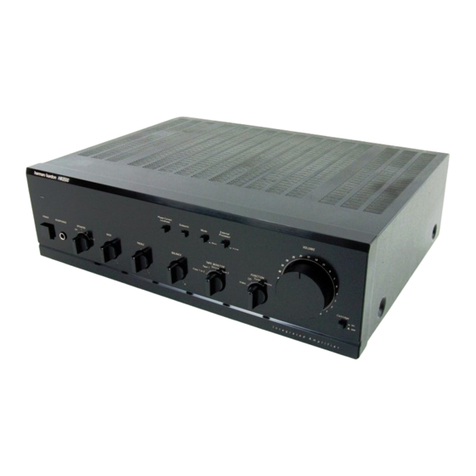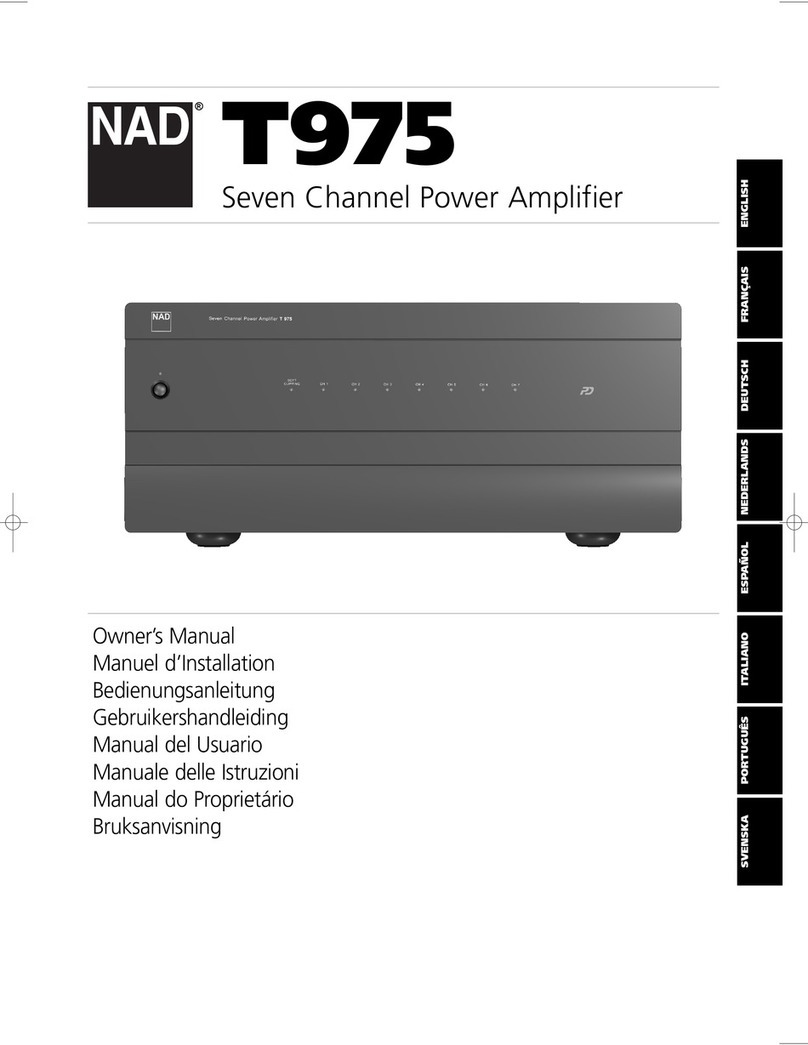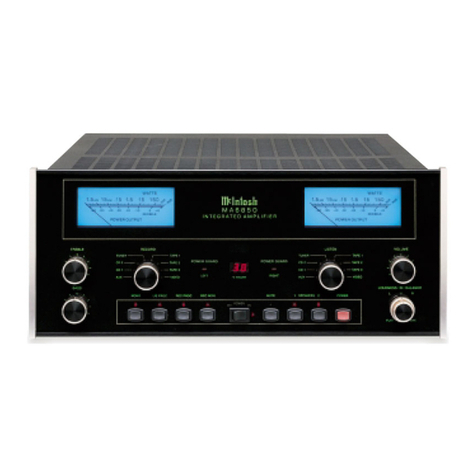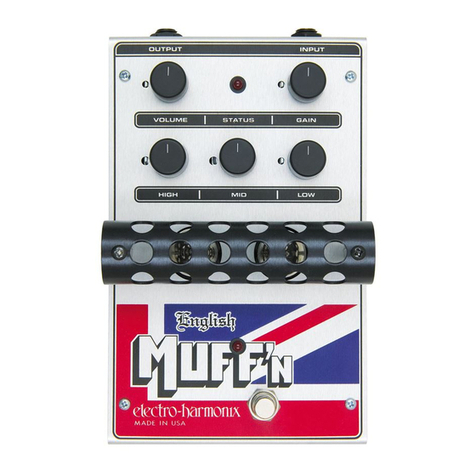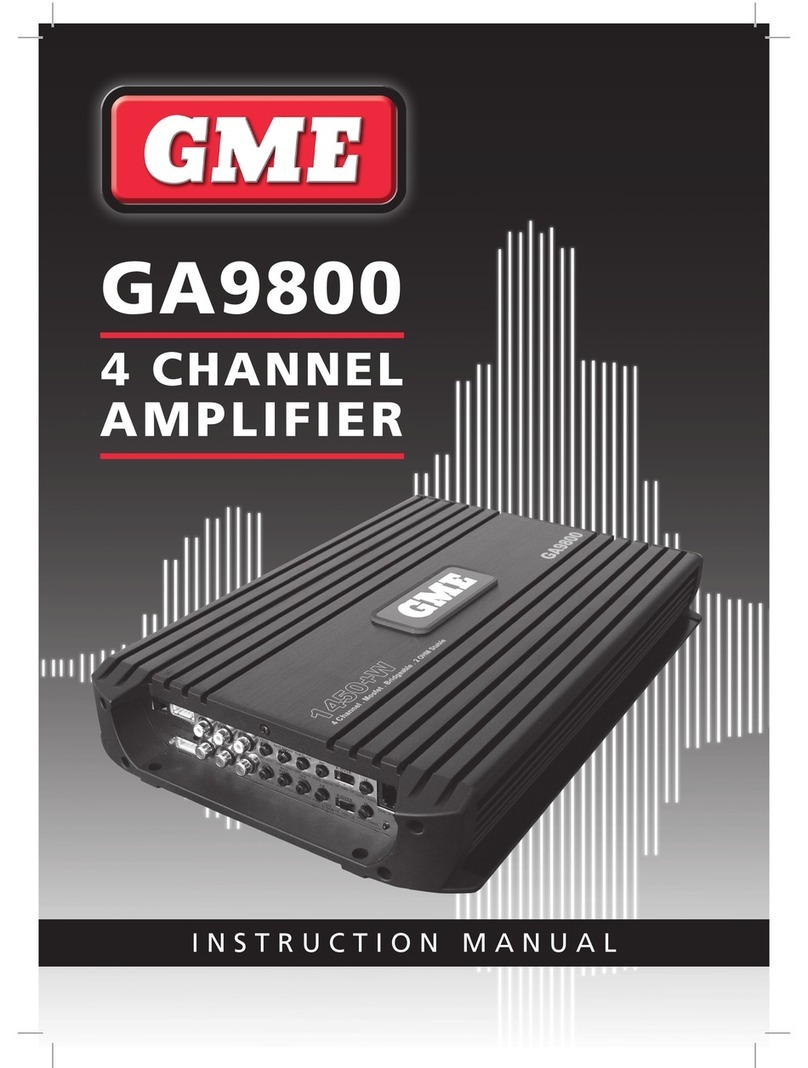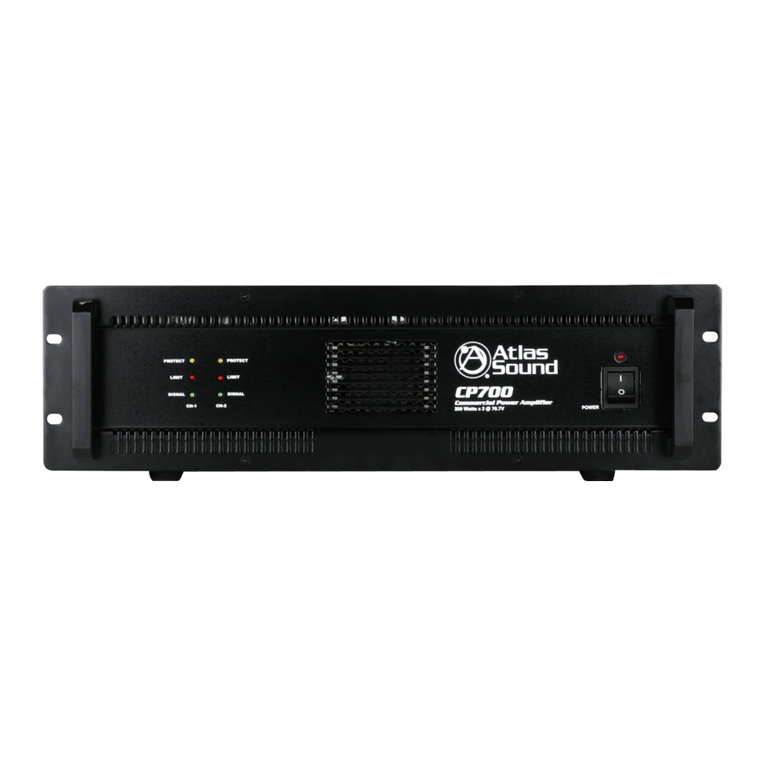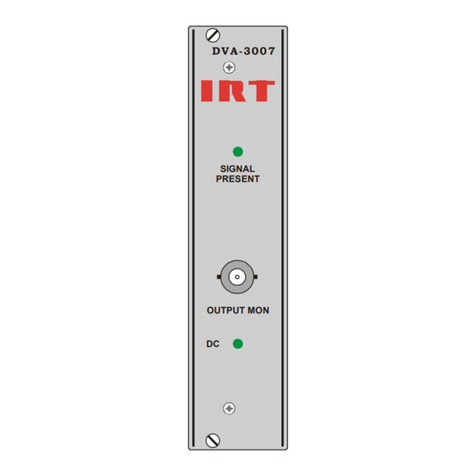
LP70S Owner’s Manual 8
Adjusting Output Tube Bias
Biasing the amplifier is a simple procedure that can easily be done
by the owner. Only a plastic screwdriver is required (one has been
included with your amplifier for this purpose). After replacing the
tubes, the amplifier should be connected to a load (your loud-
speakers will work fine) and there should be no signal applied to
the amp. It should be connected to you preamplifier with the vol-
ume control turned fully down. Turn the amplifier on. After about
one minute, turn each of the four screwdriver adjustable controls
(located near the output tube sockets) counterclockwise until the
associated indicator LED just goes off. Clockwise rotation may be
necessary first to turn the LED on; do not turn the adjusting screw
any further in the clockwise direction once the LED has come on.
After the amplifier has warmed up thirty minutes, the procedure just
described should be repeated. NOTE: It is normal for these LEDs
to flash or flicker when the amplifier is in use. This biasing proce-
dure should be performed whenever the amplifier's output tubes
are replaced and after each six months of average use.
PLATE FUSE: Your LP70S has been fitted with plate supply fuses
that are installed to protect the amplifier circuitry in the event of
output tube failure. The fuse holders are physically located on the
back panel, near the speaker connectors. The cap unscrews
counter-clockwise to remove the fuse (KTK-1). An LED near the
fuse holder will light when the fuse is blown.
What happens when the fuse blows? If one of these fuses should
blow, it usually indicates a marginal output tube (one of two for
each channel) and an attempt should be made to identify and re-
place it, by either (a) replacing the fuse and turning on the amp
while watching the output tubes carefully; look for a bright white or
blue flash inside the tube. If nothing happens, then (b) lightly tap
the output tubes one by one with the plastic handle of a screw-
driver while watching for flashes inside the tube. If efforts to identify
the bad tube fail, the best course of action is to replace both tubes
in the channel that blew the fuse. If the tubes are over two years
old, or have more than 1,500 hours on them, a complete replace-
ment tube set is probably in order.
The sonic effects of a blown fuse are very low, very distorted
sounds from the speaker being driven by that channel.
TO AVOID SHOCK, ALWAYS TURN OFF THE AMPLIFIER
BEFORE REMOVING THE FUSE HOLDER CAP
Replacement fuses are available from conrad-johnson dealers.
